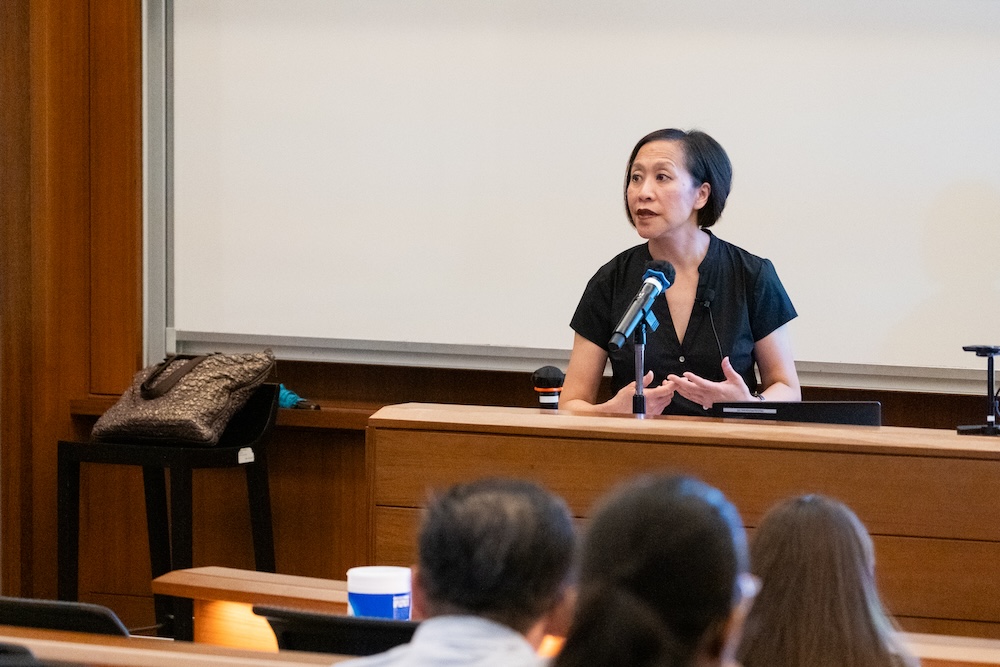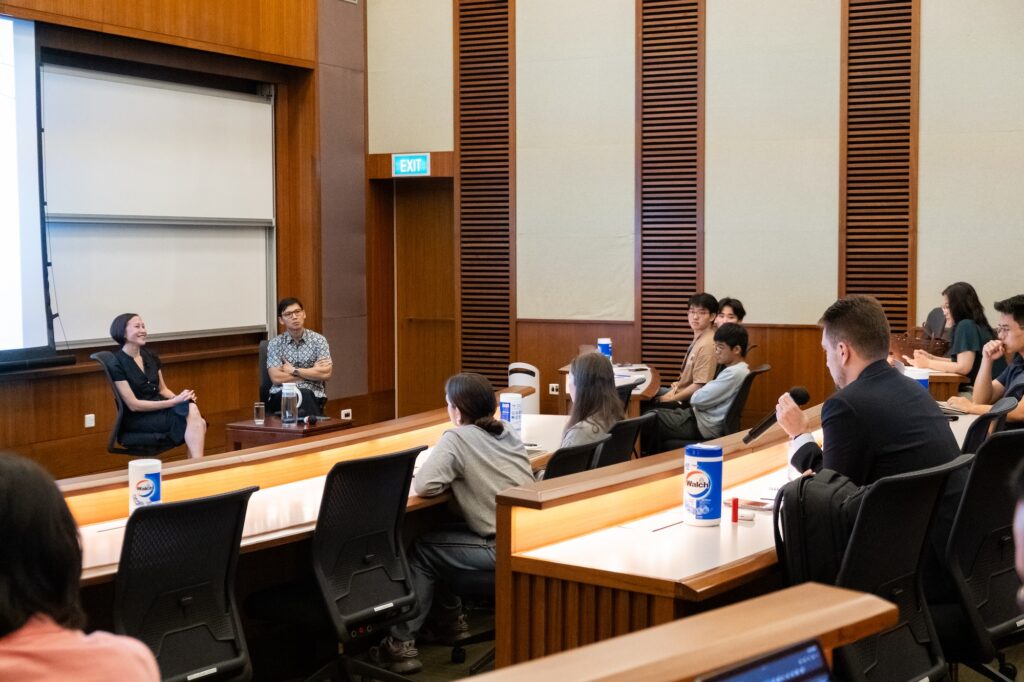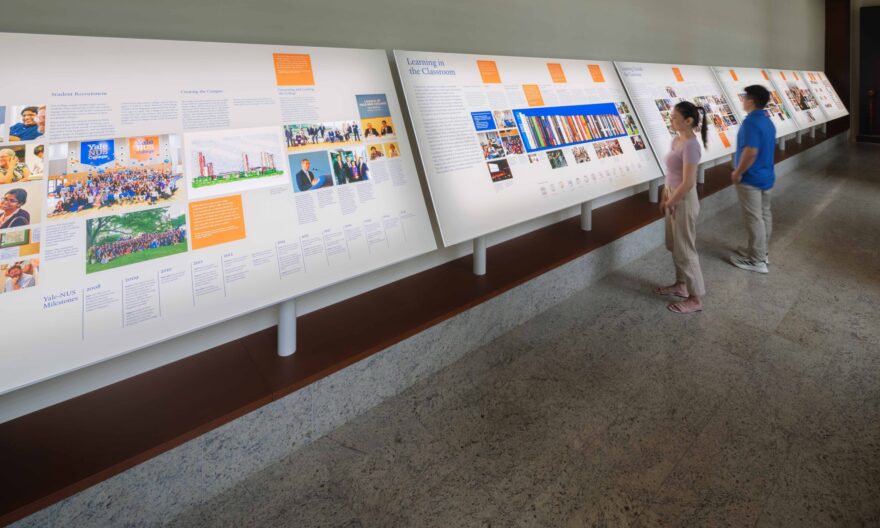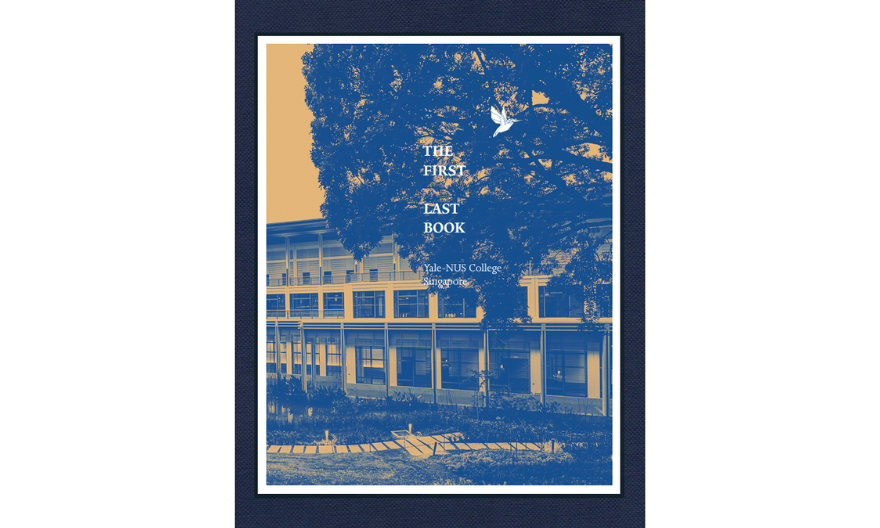Understanding the multilateralism crisis looming in the wake of shifting attention from Washington and Beijing towards Southeast Asia
Prof Alice Ba illustrates the role of Southeast Asia in intensifying US-China relations

On 20 January 2025, Yale-NUS College welcomed Emma Smith Morris Professor Alice Ba, from the Political Science and International Relations at the University of Delaware to speak at the final Geopolitics of Asia lecture organised by Yale-NUS College, in partnership with the Lee Kuan Yew School of Public Policy and supported by the Tan Chin Tuan Chinese Culture & Civilisation Programme. A well-known academic in the field of international relations of East and Southeast Asia, Prof Ba’s talk, ‘Multilateralism, Great Power Rivalry, and Diversified Practices in Asia: To What Effect?’ attracted students, faculty, and attendees looking to understand Southeast Asia’s positionality in US-China Relations.
Prof Ba began by highlighting her focus of the lecture to mainly answer three questions in relation to multilateralism, which refers to collaboration between several countries in pursuit of a common goal: What kind of institutional activity do we see? What does institutional activity tell us? What are other ways to view multilateralism and its effects?
Dividing the lecture into three sections: Multilateralism’s Crisis, The Regional Stage, and Multilateralism’s Opportunities, she drew attention to various structures, processes, and effects of regionalism and cooperative region-building, particularly how large states negotiate power and work together to reconcile differences and offer insights into current challenges and impending opportunities.
From her ongoing research, she described the threat to these global organisations from two different power sources: from above, for instance, the Trump administration’s threats to leave multilateral organisations, and from below, as pluralisation from great powers contributes to existing fears regarding fragmentation. These particular threats, she emphasised, questions “the state of specific multilateral organisations”, particularly, whether they’ll be able to survive.
However, assuaging fears regarding such threats to multilateralism, Prof Ba pointed to the survivability and strength of regional organisations in Asia, despite the intensification of US-China relations which can fragment institutions in Asia. In her discussion of the prevalence of informal institutions in Asia, she modelled ASEAN as a nodal framework, which provides a connecting function across regions and can contribute to common practices between institutions.

She explained that multilateralism remains an adaptive, dynamic and evolving practice, and that the lack thereof doesn’t constitute fragmentation either. Prof Ba, as she concluded her lecture, emphasised this pluralisation as an opportunity rather than a problem.
Arisha Parvez, a Master of Public Policy student at the Lee Kuan Yew School of Public Policy who attended the lecture, found it to be insightful. She described how the lecture expanded on “the evolving dynamics of multilateralism and the role of formal and informal organisations in Asia’s geopolitics.”
Echoing this sentiment, Dylan Lee (Class of 2025) from Yale-NUS found the lecture helpful in conceptualising multilateralism in a wide range of ways. He added, “Amidst geopolitical rivalries, it certainly gives hope that institutions in Asia have not abandoned the practice of multilateralism entirely, but rather changed (and even continued) to engage in the practice in a variety of forms.”




